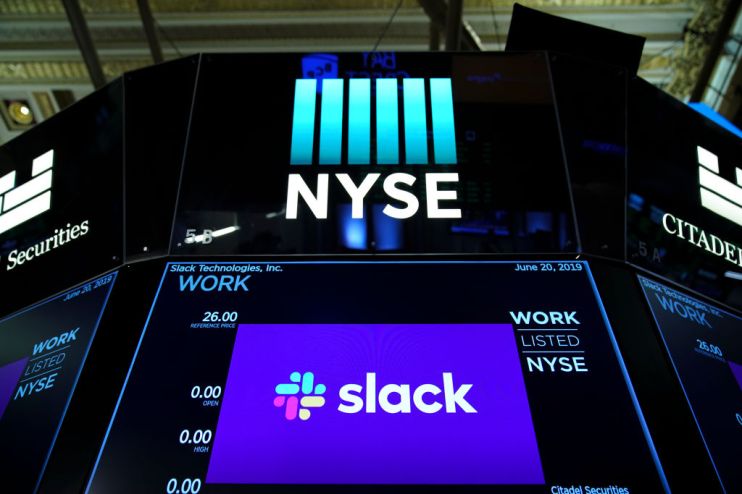Slack surges on public debut at $25bn valuation

Shares of workplace messaging app Slack soared in its first session as a publicly-traded company today, rising nearly 60 per cent to value the firm above $25bn (£19.7bn).
The tech firm had used a direct listing model to go public on Wall Street, opting to not raise any additional capital after several large funding rounds topped up the books in recent years.
Slack’s share price rose as high as $41 per share during trading, up from the New York Stock Exchange’s reference price of $26. It closed at $38.62, a rise of almost 49 per cent.
The trading price awarded Slack with a valuation of more than 50 times its full-year revenue.
Though that multiplier is lower than some other tech listings this year, analysts voiced concerns at the high valuation for a loss-making firm.
“They are going to have to do an awful lot to get the company’s fundamentals to justify that kind of valuation,” said Kathleen Smith, a principal and manager at Renaissance Capital.
Revenue for Slack rose more than 80 per cent in the last year alone to reach $400m in 2018.
It reported losses of $143.9m. Slack has more than 90m users globally, but only around 100,000 paying customers for its premium options.
“We are in a growth phase right now and we are continuing to invest, but we expect to hit breakeven cash flow soon,” said Slack’s chief financial officer Allen Shim.
The unusual move to plump for a direct listing may prove popular among other large tech firms yet to chase an initial public offering (IPO) this year, despite the lack of fresh capital it provides.
Airbnb is said to be considering a similar model, as it allows firms to save on investment banking fees and avoid restrictions on insiders vesting their shares.
Shim said: “We think a direct listing is a more effective and efficient way to get to a normalised level of supply and demand without the constraints of an IPO.”
Slack’s listing is the latest in a string of bumper tech IPOs this year, following the likes of Crowdstrike, Pinterest and Zoom. Others, such as Uber and Lyft, had a more disappointing start to trading.